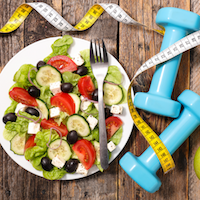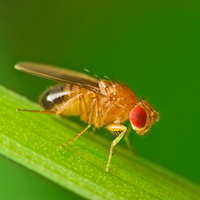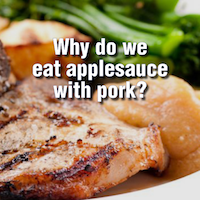Microbiome and Nutrition
The complex community of bacteria, yeasts and viruses living in our intestines, collectively known as the gut microbiome, is shaped, in part, by what we eat. Genetics, environment, and other factors also influence an individual’s microbial community. Research at the NRI investigates these complex relationships and their impact on disease risk. We use animal models and bioinformatics to study the associations between nutritional metabolites, gut microbiome, and health. What happens in the gut doesn’t stay in the gut. Your microbiome can play a role in cardiovascular disease, obesity and diabetes, and even cancer. Our team envisions a future where analysis of your microbiome can determine disease risk, and medical foods can be prescribed to treat and prevent disease by regulating the microbiome.
Publications
Microbiome and Nutrition Publications
2020
Population studies of TMAO and its precursors may help elucidate mechanisms. Meyer K
2019
Association of dietary patterns with the gut microbiota in older, community-dwelling men. Meyer K
2018
Meta-analysis of human genome-microbiome association studies: the MiBioGen consortium initiative. Meyer K
Human microbiota, blood group antigens, and disease. Sumner S
2017
Trimethylamine N-Oxide, the Microbiome, and Heart and Kidney Disease. Zeisel S
2016
Diet and Gut Microbial Function in Metabolic and Cardiovascular Disease Risk. Meyer K
Antibiotic-mediated gut microbiome perturbation accelerates development of type 1 diabetes in mice. Sumner S
Related News
Do you have the cure for the common cold?
February 26, 2018 – Everyone gets the common cold; hence, its name. Why isn’t there a cure or preventative vaccine? Actually there is, and you have it already – an active lifestyle including regular physical activity. David Nieman, DrPH, FACSM, the director of the Appalachian State University Human Performance Laboratory at the NC Research Campus, explains.
Choline Biomarker Study Wins Federal Support
February 7, 2018 – UNC Nutrition Research Institute director Steven H. Zeisel, MD, PhD has been awarded a four-year, $2.6 million grant from the National Institute of Diabetes and Digestive and Kidney Diseases (NIDDK), one of the National Institutes of Health, to develop and validate a panel of laboratory tests that can assess choline status in humans.
Study of first-graders shows fetal alcohol spectrum disorders prevalent in US communities
February 6, 2018 – Philip A. May, PhD, research professor at the UNC Nutrition Research Institute, led NIH-funded research that examined over 6,000 children to determine prevalence of FASD ranged from 1.1 to 5 percent.
A new study of more than 6,000 first-graders across four U.S. communities has found that a significant number of the children examined, as many as 5 percent in one community sample, may have fetal alcohol spectrum disorders (FASD). Funded by the National Institute on Alcohol Abuse and Alcoholism (NIAAA), part of the National Institutes of Health, the new findings may represent more accurate prevalence estimates of FASD among general U.S. communities than prior research. Previous FASD estimates were based on smaller study populations and do not reflect the overall U.S. population.
February 2018
Whole Foods and Nutrient Synergy January 29, 2018 – Have you ever wondered why we eat certain foods together? What is it about pork that demands applesauce? Wouldn’t a lovely piece of hard cheese go well with that glass of red wine? Is beef and broccoli just a dish or...
Why a Fly?
January 29, 2018 – The genome of a fruit fly is strikingly similar to that of a human — so much so that scientists have been studying these tiny insects for over 100 years, in search of treatments for diseases like spinal muscular atrophy and neurological disorders. UNC geneticist and director of the Integrative Program for Biological and Genome Sciences Bob Duronio, PhD is one of those scientists. “It begins with curiosity. Curiosity about a process. And then a question about that process. And then a hypothesis that will lead to an experiment that will provide results and data to interpret. What I love about this process is that my hypotheses are often wrong. And that’s really exciting — because no human being is smart enough to understand biology at a level of molecular detail where their hypotheses are always right.”
Whole Foods and Nutrient Synergy
January 29, 2018 – Have you ever wondered why we eat certain foods together? What is it about pork that demands applesauce? Wouldn’t a lovely piece of hard cheese go well with that glass of red wine? Is beef and broccoli just a dish or might there be a benefit to eating those together? It is difficult to trace how these traditional pairings got started. Apples with pork dates back to the time of Christ when an Ancient Roman named Apicius wrote down a recipe, but where did he get the idea? We find a clue in the story of why we eat mint with lamb. In an attempt to decrease the consumption of lamb and thereby increase wool exports, Queen Elizabeth I declared it unlawful to eat lamb without mint sauce, presumably because people disliked the taste of mint sauce (basically mint and vinegar). As it turned out, mint sauce was a great compliment to lamb. So, yes. Your first instinct was correct – we eat certain foods together because they taste good together!






